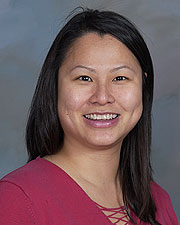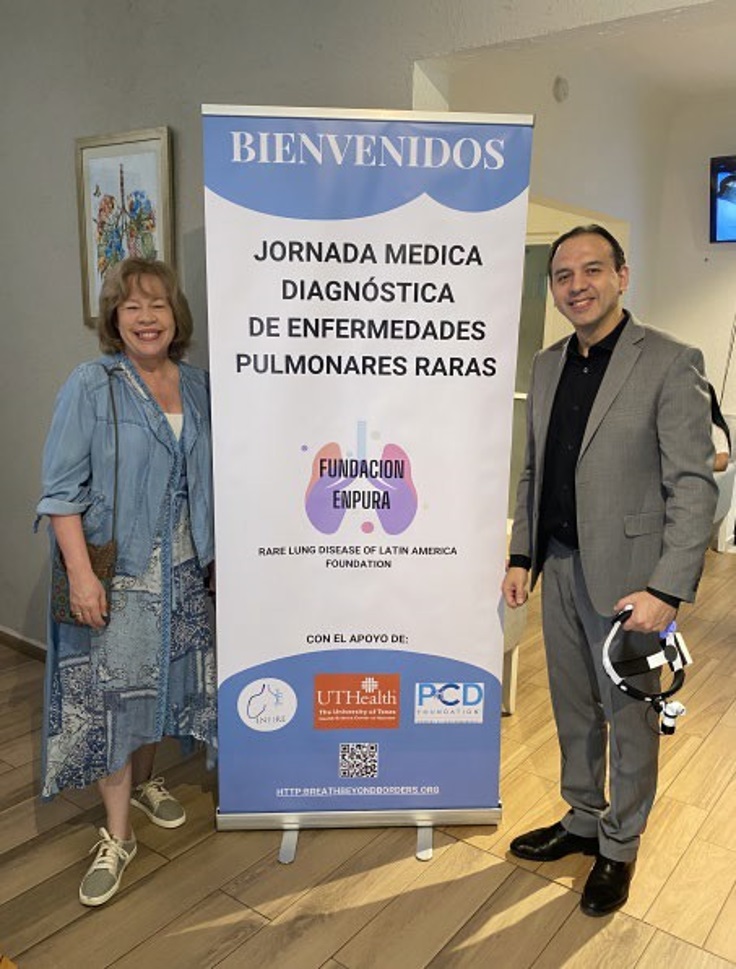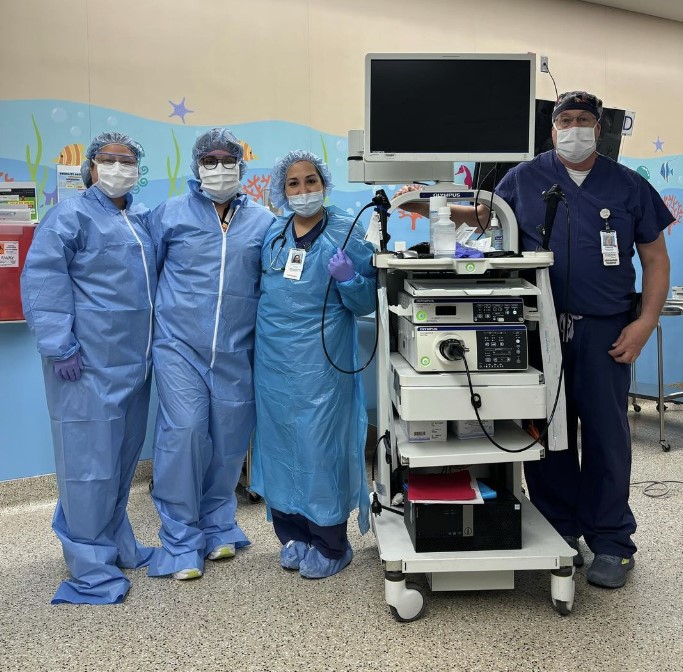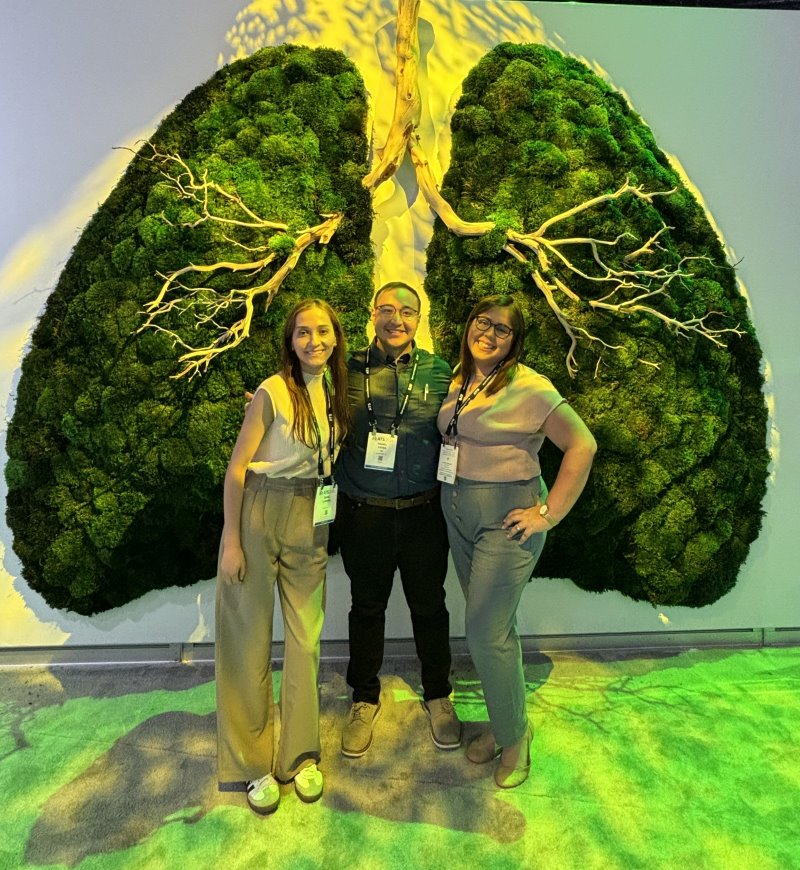Message from the Program Director

Cindy K. Jon, MD, MPH
Welcome to the Pediatric Pulmonary Fellowship Program at the University of Texas Health Science Center at Houston. Thank you for your interest and for taking the time from your busy schedule to read about our program.
The training program that you choose is integral in the development of your knowledge & clinical skills during fellowship and eventually help direct your career path in pediatric pulmonary medicine. Our program focuses on you as an individual and customizes your educational journey to best fit your needs and aspirations. We adjust our educational curriculum based on the need’s assessment of the fellows’ performance and their career interests and goals. The faculty is deeply committed to training fellows and actively engages, supports, and guides the fellows in their educational pursuits. As a testament to our dedication to fellow education, we have a 100% board pass rate on the first attempt for ALL fellows who have graduated from our program.
We offer a balanced curriculum in patient-centered care, comprehensive teaching, and innovative research opportunities. Our program prepares you to care for a diverse patient population with a wide variety of respiratory disorders in both a large metropolitan hospital (Children’s Memorial Hermann Hospital) and a sizeable multispecialty clinic practice. In addition to the fellow’s weekly continuity clinic, our curriculum sets aside 1 clinic a month for the fellows to broaden their exposure to special patient subsets by attending a pediatric pulmonary subspecialty clinic of their choice:
- Aerodigestive clinic
- Bronchopulmonary dysplasia clinic
- Congenital Diaphragmatic Hernia (CDH) clinic
- MD Anderson Pulmonary clinic
- Pediatric Complex Care clinic
- Pediatric Sleep clinic
- Rare Lung Disease clinic
- Pulmonary Hypertension clinic
- Sickle Cell-Pediatric Pulmonary clinic
In addition to in-person clinic visits, we have the opportunity to provide innovative telehealth visits on selected patients with complex medical conditions by using a home electronic health device.

Our program also hosts a wide variety of programs with national recognition. Specifically, we are an accredited Primary Ciliary Dyskinesia (PCD) Foundation Center with a global health program in Latin America. Due to our large bronchopulmonary dysplasia patient population, we are 1 of the 17 nationally recognized NICHD Neonatal Research Network Centers. Our Complex Care Program is a medical home for over 600 children with special health care needs, including patients with genetic syndromes, ventilator dependence, severe and/or rare lung disease, and more. Our nationally recognized Congenital Diaphragmatic Hernia (CDH) center focuses on a multidisciplinary approach to care. Not only do we assess lung function in light of the pulmonary hypoplasia with PFTs and impulse oscillometry, we also monitor neurocognitive development with Bayley testing.
In addition to in-person clinic visits, we provide innovative telehealth visits on selected patients with complex medical conditions by using a home electronic health device (TYTO) equipped with a thermometer, otoscope, stethoscope, and tongue depressor adapters.
Fellows also learn the principles and utilization of diagnostic tools and how to interpret study results from
- advanced pulmonary technologies

- complete pulmonary function tests
- exercise bronchoprovocation studies
- cardiopulmonary exercise testing
- impulse oscillometry
- lung clearance index device
- nasal nitric oxide testing
- ciliary biopsy for high-speed video microscope analysis (HSVMA)
- laryngoscopy and bronchoscopy in clinic and hospital setting.
With all of the unique learning opportunities and tools available in our program, fellows are able to truly deliver comprehensive respiratory care to their patients.
Our program provides a strong foundation in the development of scholarly activities. Through the Clinical Research Curriculum, the fellows learn the basics of epidemiology, biostatistics, literature appraisal, clinical trial design, etc. Because our faculty has multiple grant-funded research projects, fellows have the option to join a current project, develop a subsidiary proposal, or design their own project. With faculty mentorship, the fellow develops a scholarly project with the goal of presenting at local and national conferences and producing a manuscript for publication. UT offers a grant writing course for fellows interested in pursuing an academic career. Fellows interested in a career in medical education may enhance their teaching skills via the UT Physician Educator Program. In order to improve their understanding of the medicolegal and business aspects of medical care, fellows may attend the Health Care Management course through the University of Houston.
 Because our faculty has multiple grant-funded research projects, fellows have the option to join a current project, develop a subsidiary proposal, or design their own project. With faculty mentorship, the fellow develops a scholarly project with the goal of presenting at local and national conferences and producing a manuscript for publication. All fellows attend the annual American Thoracic Society (ATS) International Conference with the goal of (at least) a poster presentation. The ATS conference offers the fellows a unique opportunity to attend a variety of pulmonary courses and symposia, learn from the world’s experts in pulmonary disease, discover up-to-date trends in pulmonary medicine, and network with colleagues.
Because our faculty has multiple grant-funded research projects, fellows have the option to join a current project, develop a subsidiary proposal, or design their own project. With faculty mentorship, the fellow develops a scholarly project with the goal of presenting at local and national conferences and producing a manuscript for publication. All fellows attend the annual American Thoracic Society (ATS) International Conference with the goal of (at least) a poster presentation. The ATS conference offers the fellows a unique opportunity to attend a variety of pulmonary courses and symposia, learn from the world’s experts in pulmonary disease, discover up-to-date trends in pulmonary medicine, and network with colleagues.
Our modest program size allows the faculty to focus, customize, and enhance the quality of educational endeavors for each individual fellow. As such, the faculty and fellows work closely with each other with mutual respect and often develop a camaraderie in a ‘work family’ environment. As the Program Director, I am your educator, mentor, and advocate. My duty is to provide you with the best training in order for you to become a world-class Pediatric Pulmonary clinician, educator, and scientist.
Beyond our training program, Houston has many attributes that contribute to a healthy work-life balance. As the 4th largest city in the US, Houston offers a relatively low cost of living, huge selection of multicultural foods and events, multiple sporting venues, plentiful parks and green/outdoor spaces, and many other year-round activities. The diverse Houston population is also a rich training ground to appreciate the impact of social determinants of health as well as provide exposure to a variety of common and rare lung disorders.
Whether you choose an academic career or private practice, our program prepares you to meet the challenges and starts you on your career path during your fellowship training. We encourage you to apply to the University of Texas Health Science Center at Houston Pediatric Pulmonary Fellowship Program. Thank you for considering our program. Please contact us if you have any questions.
Cindy Jon, MD
Program Director